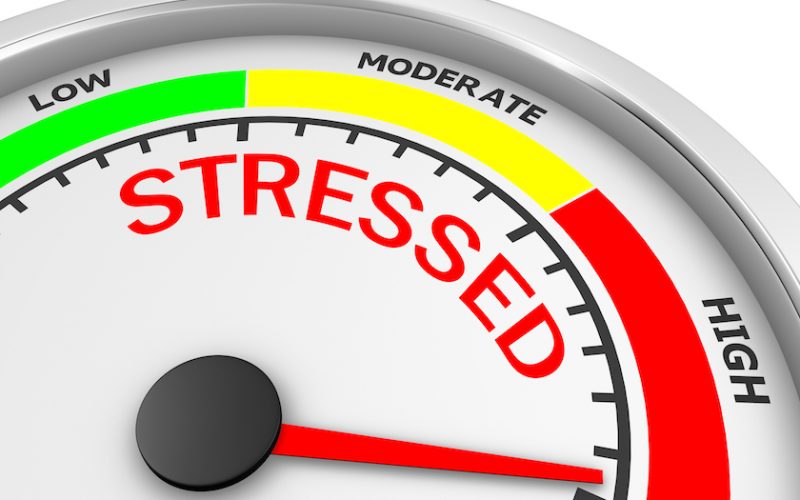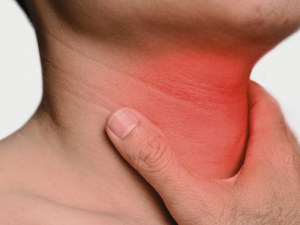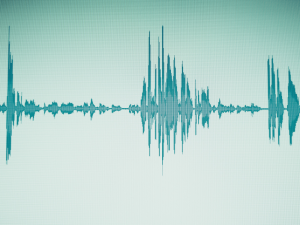Stress is a part of everyday life; it can affect our body, our thoughts, feelings, and our behaviour. It’s impossible to avoid some significant life events, bereavement, divorce, family illness, redundancy even parenthood. Stress can induce a “fight-or-flight” response in the body, producing hormones to prepare our bodies to either take on the challenge (fight) or to get away as quickly as possible (flight).
Stress hormones increase the heart rate and blood pressure, make us breathe faster, and make muscles stronger. They also inhibit non-essential functions, such as digestion. This natural response is designed to last for a short period, extremely helpful in life-threatening situations. We have all experience those everyday events that initiate a short-term stress response; a fire engine with its blues and twos on (blue flashing lights and two-tone siren) whizzing past, or missing a train when we are already running late.
Chronic stress
Many factors can lead to prolonged stress; relationship problems, ongoing family illness or ones own health problems can result in long-term stress. It is this long-term stress which can be detrimental to our health. It raises blood pressure, weakens the immune system and can lead to symptoms varying from headaches to IBS, sleeping problems, weight gain and concentration impairment, and anxiety, depression and mental health challenges
How stress affects our body
The Central nervous (CNS) and endocrine systems
When are body perceive a threat (real or imagined), the body needs to focus on responding to the threat with a “fight-or-flight” response. The central nervous system (CNS) controls the fight or flight response, the hypothalamus gland in the brain sends a message to the adrenal glands to release the hormones adrenaline and cortisol. These stress hormones speed up the heart rate sending blood to muscles, heart, and other organs to deal with the sensed emergency. The hypothalamus should tell all systems to return to normal when the perceived fear has passed. However, if the stressor doesn’t go away or the CNS fails to revert to normal, the response will remain. Prolonged, unresolved, ongoing or severe stressors is described as chronic stress.
Stress manifests itself differently in the individual; it goes without saying that it can be a challenge to reduce the amount of stress in our lives, as sometimes it is beyond our control. During stressful encounters, a variety of effects have been reported such as increased heart and breathing rate, dry mouth, increased muscle tone and sweating. Interestingly, although we tend to believe that all stress is bad, its does have some benefits: for example, its allows us to focus and pay attention at important events.
Common symptoms associated with chronic stress
- Aches and pain, back, neck or shoulders

- Jaw pain
- Headaches
- Stomach ache
- Digestive symptoms such as IBS
- Report an inability to relax
- Poor sleep or insomnia
- Other symptoms include
- Weight gain especially around the waist
- Feeling low, down or depressed
- Anger, sadness or despair
A vicious cycle is often the consequence; These symptoms can cause people to feel considerably unwell, which exacerbates the stress response, and around it goes
Stress related problems in more detail
Postural changes
One effect of the flight or fight response is a postural change, holding an adapted positions for extended periods of time. For example hunching forwards, with shoulders raised requires more muscular effort, which can result in overall fatigue, achy fatigued and sometimes (often) painful muscle, and headaches too.
Muscular system
Muscles tense up during stress periods to protect themselves from injury. If there are constant stress muscles. Stress affects our musculoskeletal system (muscles and joints). Muscle tone increases, which can put a strain on the body energy resources. In turn, muscles can also become achy, sore or painful due to reduced blood flow; blood doesn’t circulate to tight muscle very easily resulting in ischaemic pain (pain due to lack of blood). Also, there can be a build-up of waste products such as lactic acid which can be a cause of cramp-like pain.
Respiratory system
Stress hormones affect respiratory and cardiovascular systems. During the stress response, breathing rate gets faster to distribute oxygen-rich blood to the body quickly. Poor breathing can lead to hyperventilation and reduced carbon dioxide levels in the blood, which can result in a variety of symptoms including; upper back discomfort because the ribs and thorax can become restricted. Resulting in chest tightness, dizzy spells, feeling light-headed or fatigue.Stress can make breathing problems such as asthma or COPD, more challenging to manage.
Breathing
When breathing changes, from beneficial long slow, calm restorative breaths I use in my pilates classes and somatic coaching sessions to short often sharp shallow ones. Ideally, there should be some movement in the belly when we breathe. I encourage my Pilates and somatic clients to breathe below their nipples and feel their abdomen rise and fall. Using the diaphragm, the large dome-shaped muscle that separates the chest from the abdomen has many health benefits. It pushes downwards into the abdominal cavity as the lungs expand and stretch, massaging our internal organs on the way. Small children use their bellies to breathe; abdominal breathing aids lymphatic drainage, circulation, digestion and absorption of nutrients while helping with lymphatic drainage and circulation.
Digestive system
As mentioned previously digestion and absorption can be affected by stress, the small circular muscles called sphincters along the digestive tract, become tight during both short and prolonged times of stress, making the transition to food more difficult. Also, digestive juices and secretions reduce during stress; results can be bloating, gas, flatulence, heartburn/reflux and discomfort, nausea, vomiting, or a stomach ache. Stress can also affect the way food moves through the gut, resulting in diarrhoea or constipation. The liver produces extra glucose (blood sugar) during stressful events to boost energy, many studies show that chronic stressful states may increase the risk of developing type 2 diabetes.
Adrenal glands
Adrenaline is the hormone is released from the adrenal glands (small glands sitting on top of the kidneys) when in fight or flight mode. It is essential for survival. Interesting, that might be for good reasons, you’re about to do exhilarating like a parachute jump. One of the effects of adrenaline is that just like cortisol it suppresses the immune system which means long-term stress can lead to burn out or adrenal fatigue.
Cardiovascular Systems
Stress hormones cause blood vessels to tighten and constrict, the heart to pumps faster diverting more oxygen to muscles resulting in increased physical strength. The downside it that this also raises blood pressure, recurrent or chronic stress will make the heart work too hard for too long, which over time increased the risks of having a stroke or heart attack.
The nervous system
Long-term stress causes the parasympathetic nervous system (part of the autonomic, non-voluntary, nervous system) to switch off or be turned down, which allows the sympathetic, fight-or-flight, nervous system, to slow down the action of the digestive and reproductive systems. Ultimately, this can lead to adrenal fatigue where the adrenal glands become unable to respond and cause issues like infertility.
Sexuality and reproductive system
Stress can result in a profound effect on both male and female sex hormones and lower libido. Women’s menstrual cycle can be disturbed resulting in irregular, more painful or heavier periods. With older women, chronic stress can also intensify the symptoms of the peri-menopause and menopause. In men, episodes of chronic stress have been recorded as one several reasons for a drop in the level of testosterone, causing erectile dysfunction or impotence, and disrupt sperm production.

Stress management
Ultimately, effective stress management requires and multidisciplinary approach especially for long term situations. The physical effects need to be addressed to allow for the lifestyle changes to make a difference. Treatment and support that work on the muscles, range of motion and breathing will help with the bonus of aiding the digestive system and absorption of nutrients. In just a few treatment sessions most people notice a difference and can start a plan for a healthier lifestyle.
How Osteopathy can help
As an osteopath, pilates teacher and somatic movement coach I see a large number of patients with joint and muscles symptoms, a significant number for whom stress is a major contributing factor. Feeling fatigued or stressed goes hand in hand with aches and pains. One of the basic tenets of osteopathy is that the mind and body are interdependent. The stress response is a superb example of the direct effect of our emotions on our body. Fortunately, it can work the other way too; feeling comfortable in one’s body, with the ability to breathe easily, feeling well rested and energised has a powerful effect on one’s ability to cope.
Osteopathy can help the body to heal and regulate itself by removing barriers to recovery and encouraging a rebalancing of the internal environment. The body is always trying to self-correct and reach a balance (homoeostasis). Osteopaths are skilled in releasing muscle tension not only to relax the affected tissues but to support the body to continue the process of self-correction after the treatment session. Using a variety of techniques, manipulation, soft tissue techniques (massage), and the more subtle treatments known as cranial, which involve gentle touch away from a patient’s head.
In my clinical experience, the diaphragm is a crucial muscle when it comes to any stress or anxiety response. It is common that it becomes tight at its attachments around the lower ribs and onto the front of the lumbar spine. Techniques which encourage joint mobility working on the areas of the spine, along with attention where the autonomic nervous system emerges.
Osteopaths can promote a rebalancing between the sympathetic and parasympathetic components, which is usually very calming, many patients report feeling relaxed and sometimes snooze during treatment. We can also work more directly on the symptomatic areas using a range of techniques to help reduce muscle tension, soreness, and restrictions within the digestive. Osteopathy can help the body to relax by using therapeutic touch itself, which can help patients cope by reducing the physical symptom part of the cycle. Patients often report having a better night’s sleep after treatment, along with gaining a sense control having taken action to improve their wellbeing.
Please note: This is for guidance only, it should not be considered a substitute for medical advice, diagnosis or treatment given in person by an appropriately trained health professional.







